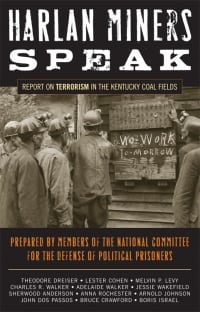The Great Depression with its national reach exacerbated the already grim economy in the coalfields. Hennen writes that “[b]y late 1931, four thousand Harlan County miners, more than one in three, were out of work. Working miners made as little as eighty cents a day and worked only a few days a month.” Plagued by evictions from company houses, no other job possibilities, and even starvation, miners and their families were no longer able to rely on aid from the United Mine Workers of America (UMWA).
